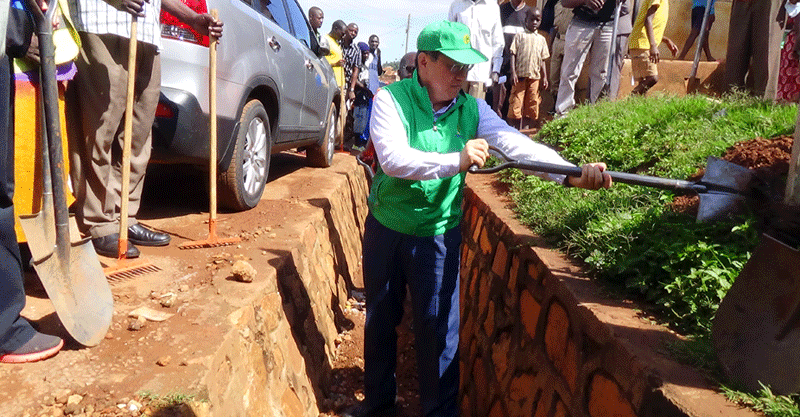Some of Uganda’s major development partners converged this week for a discussion in Kampala on what the country needs to focus on in order to achieve meaningful transformation and achieve Sustainable Development Goals (SDGs).
Agriculture, health, infrastructure, education and the need to promote good governance featured prominently in the plans presented by Uganda’s major donors for the period 2016-2020.
The seminar on how development partners plan to contribute to three key SDGs i.e infrastructure, education and rural development. The discussion was held at the residence of South Korea’s Ambassador Park Jong-Dae.
Whereas the donors emphasised that their plans are aligned to Uganda’s Vision 2040, the apparent focus on the critical challenges of Uganda’s economy were hailed by Ugandan experts and members of the civil society as spot on.
Zdenek Suda, the Program and Policy Development Officer at USAID said his country will continue to focus its assistance on health, education, especially of the girl child, as well as systems strengthening in the coming five years.
The World Bank country manager Christina Calvo on the other hand, pointed out that whereas her organisation is yet to formulate a business plan for the next five years, the need to invest in agriculture and infrastructure remain cornerstone goals not only for Uganda but also for the bank bank because it furthers the bank’s key goal of ending poverty in all its forms.
Chae Eun-Sil, a Specialist on Effectiveness of Official Development Assistance from the Korea International Cooperation Agency (KOICA) said that her country’s development support will go towards agriculture, rural transformation, and health with a focus on the girl child.
Dr. Ezra Suruma, who was recently named as the Head of the Delivery Unit in the office of the Prime Minister, agonised over the government’s failure to prioritise its resources for maximum benefit to society.
While praising President Museveni’s vision over the past three decades that has seen significant investments in peace and security, infrastructure, education and health, Suruma expressed dismay over the neglect of some key sectors such as agriculture that have high impact in as far as poverty reduction is concerned.
Suruma said: “On paper, poverty is supposed to be a priority but in practice, we have not allocated the resources towards achieving this goal.”
Suruma attributed the failures in resource allocations to the critical areas of the economy on lack of consensus from across various stakeholders as well as misallocation of resources.
“Even where resources have been allocated, delivery of services have been allocated, the delivery is very challenging. While we’ve achieved increased access to education through UPE, literacy and numeracy levels are disappointing,” said Suruma.
His candid speech on the planning challenges of Uganda won the praise of experts such as Ramathan Ggoobi, a lecturer from Makerere University who said that in fact the problem with Uganda is President Museveni’s unilateral decision making tendencies.
“People from the National Planning Authority (NPA) have publicly stated that the National plans are dictated by the incumbent. Uganda’s priorities are personal choices of the president. We accept that he’s a visionary person.
But you cannot achieve growth without inclusive debate. That is why you see there is apathy on the part of the technocrats,” said Ggoobi.
Besides poor planning, Ggoobi argued that the challenge with Uganda is corruption and misallocation of the meagre resources.
“The problem is not that we do not have priorities. The problem is that we allocate money to sectors but never get results due to misappropriation of resources. Resources have clearly been allocated to the health and education sectors, but instead of having health centres, you have a swimming pool in someone’s home,”said Ggoobi.
Ambassador Park appeared to agree with Ggoobi when he said that Uganda needs to change its moral campus if its wants to attain sustainable development goals.
“For us, progress will come from mind-set change. People need to assume a sense of responsibility. Do not live to eat. Live to work,” said Ambassador Park.
Ambassador Park cited examples from 1970s Korea where the government awarded grants to villages and private companies after they had demonstrated successes in form of innovations, increased output or jobs created.
Over the past three years, the Embassy of South Korea has been trying to revive the spirit of self-help and cooperation. This year, it added a new aspect of competition among villages to as to provide incentives to people to work harder.
Kenneth Mugambe, the Director of the Budget in the Ministry of Finance also called on the civil society and the private sector to demand for greater accountability from the government instead of waiting for the government to account.








